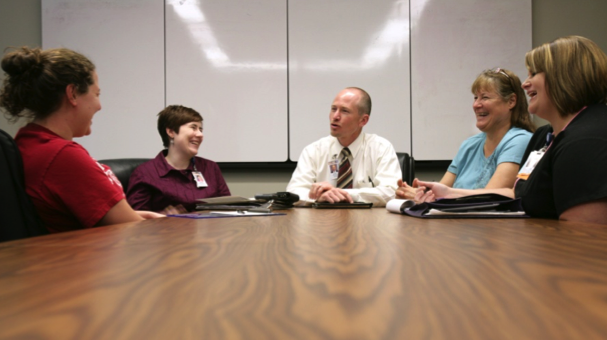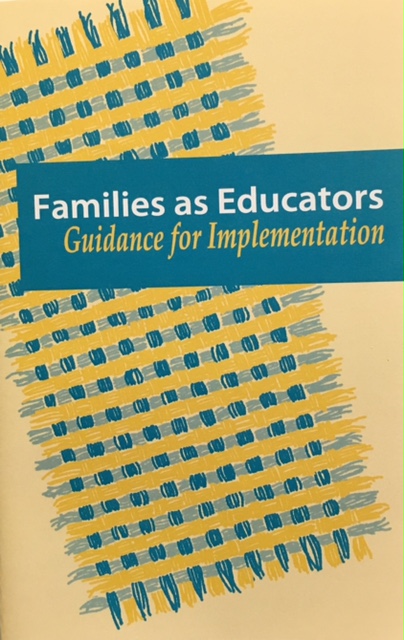
Family members attend all seminars alongside clinicians as full and equal participants.
Solomon et al, 2010

Family members attend all seminars alongside clinicians as full and equal participants.
Solomon et al, 2010
Spearheaded by the Education Development Center, Inc. (EDC), the Initiative for Pediatric Palliative Care (IPPC) was a national project that had as its primary goal improving family-centered care for children living with life-threatening conditions. IPPC developed quality improvement tools and a 25-hour instructional curriculum as well as an accompanying, award-winning, video series.
In 2005, IPPC began conducting a series of innovative educational retreats. During these regional retreats, interdisciplinary teams, including family members, from a variety of health care settings were introduced to the curriculum, video series, and pedagogy of “relational learning across boundaries” and were prepared to lead educational and organizational change activities in their own institutions. By 2010, twenty-one retreats, involving almost 2,000 clinicians and over 300 family members, had been held across the US and in Canada.
The retreat design, through its “Families as Educators” component funded by the Schwartz Center, consciously incorporated family members, selected to participate as co-teachers and co-learners along with clinicians. Family members were fully integrated as retreat participants; like clinicians, some also served in other roles including panel members, small group facilitators, and members of regional planning committees.
Throughout the IPPC project, the family “voice” was integrated in the 4 key elements:

Feedback from the educational retreats as well as data from the impact study done by IPPC confirmed that the participation of family members not only enhanced the learning experience of clinicians but also contributed to institutional improvements (Solomon et al, 2010). Participation also maximized the learning of families themselves and helped them become more effective advocates and educators within their own communities. A best practice document, Families as Educators: Guidance for Implementation, done at the completion of the project, summarizes learning for other organizations. Although IPPC as a national project has ended, the curriculum continues to be used in a number of hospitals, including Arkansas Children’s Hospital.
In April 2006, Arkansas Children’s Hospital (ACH) in Little Rock sent an interdisciplinary team, including family members, to an IPPC retreat. At that retreat, three family members from the ACH team were part of a parent panel.
Following the retreat, Arkansas Children’s started its own education program modeled on the IPPC curriculum and approach. Beginning in the fall of 2006, an 8-week training series has been held 3 times per year. Each series includes ten clinical and support staff participants, representing different disciplines (including physicians) and units, as well as 1 – 2 family members. The hospital has now trained over 330 clinicians and support staff from various disciplines and involved over 20 family members. ACH plans to continue its educational series because it is well received, well attended, and impactful for all involved. Since the IPPC series began, input from family members and staff participants have led to curriculum and program improvement.
The positive experience with utilizing family members as educators in the IPPC series has led to other opportunities for them to be involved in planning and educational efforts at the hospital. For example, “psychosocial grand rounds” is an educational program presented monthly for any interested clinician or staff member. As part of an effort to raise awareness and sensitivity on issues relating to grief and loss, the ACH Bereavement Committee organized a panel of ACH staff members who were also bereaved parents. A bereaved parent serving on the Committee helped plan the presentation and was part of the panel.
According to Greg Adams, LCSW, coordinator of ACH’s IPPC series, “With careful discernment in choosing participating family members and provision of appropriate support, they have added significant depth and breadth to the educational experience for professionals.” The value of family members’ participation was affirmed in a qualitative research study, Bereaved Caregivers as Educators in Pediatric Palliative Care: Their Experiences and Impact.